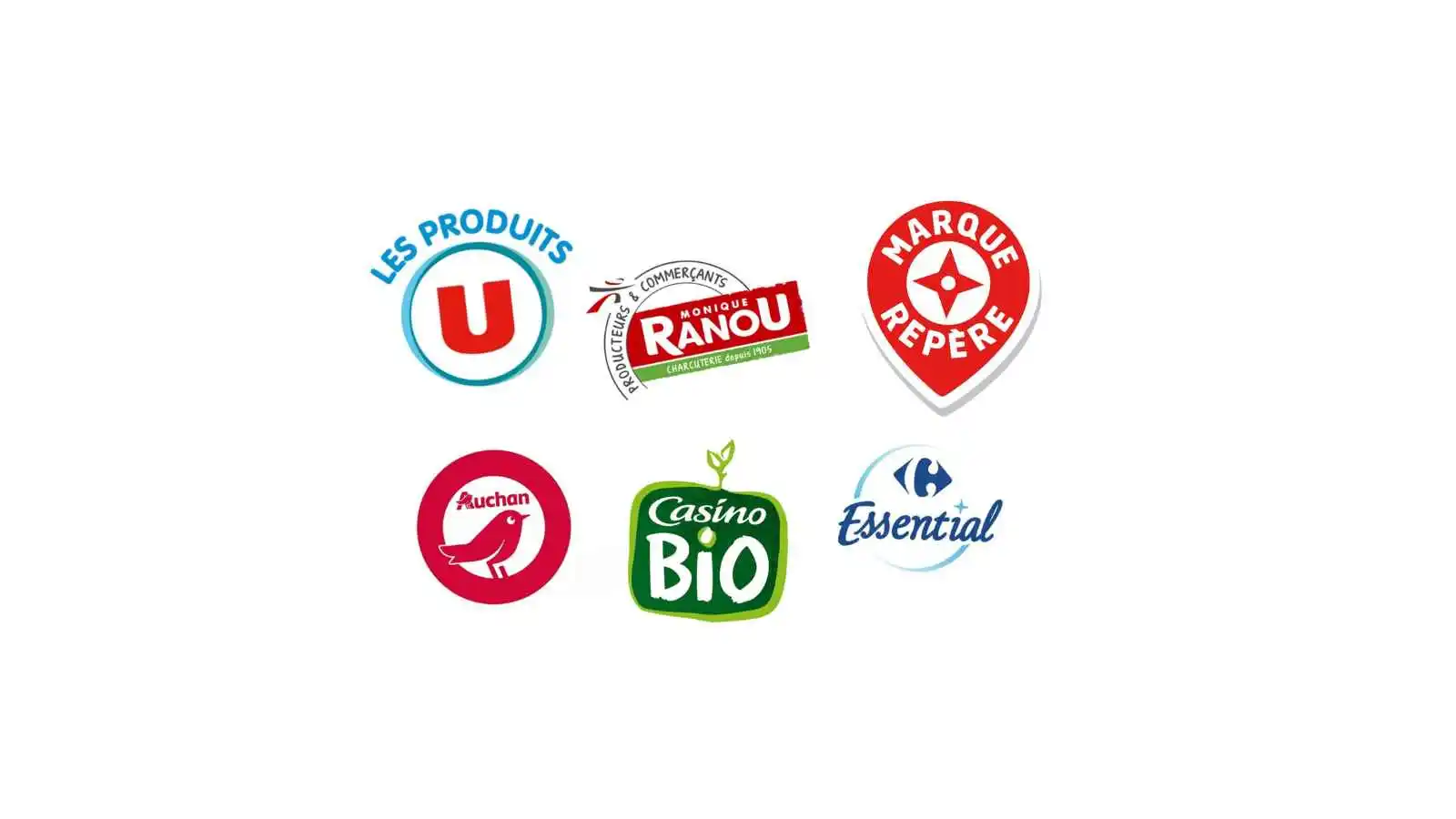Private label is a key concept in the world of retail and distribution. It is a brand created, produced and marketed by a distributor or retailer, rather than by the manufacturer of a product. As a differentiation and price management strategy, private labels have become a major strategic lever for retailers seeking to optimize their product offering while boosting margins.
What is a private label?
A private label is a product or range of products sold under the distributor’s own name. Unlike national brands, which are generally associated with third-party manufacturers, private labels are available exclusively through the distributor’s own outlets. Distributors control all aspects of private label production, marketing and distribution, giving them direct control over costs, prices and sales strategy.
The difference between private labels and national brands
The main difference between a private label and a national brand lies in control of the value chain. Whereas national brands are managed by external manufacturers, private labels are created and marketed by retailers themselves. This gives retailers an advantage in terms of flexibility in managing prices, stocks and promotions. Private label products are often positioned as cheaper alternatives to national brands, making them attractive to consumers looking for quality products at competitive prices.
Advantages of Private Label
Private labels offer many advantages for distributors and retailers, from price optimization to customer loyalty. These brands have become strategic instruments for reducing dependence on national brands while optimizing profit margins.
1. Increased profit margin
Private labels enable distributors to retain a larger share of the profit margin than with national brand products. By controlling the production chain, from manufacturing to distribution, retailers can optimize production costs, reduce intermediaries and offer products at competitive prices, while maintaining higher profitability.
2. Pricing flexibility
Private labels give retailers greater flexibility in their pricing strategies. Unlike national brands, which are often subject to pricing strategies imposed by manufacturers, private labels enable prices to be set that are better adapted to consumer needs, while maximizing margins. This is particularly relevant in an environment where price competitiveness is a crucial factor.
3. Customer differentiation and loyalty
By offering products under their own brand name, retailers can differentiate themselves from competitors and build consumer loyalty. Private labels enable retailers to develop an exclusive offering, creating a sense of belonging and loyalty among customers. In addition, product innovation and adaptation to market trends are facilitated, enabling retailers to remain competitive and responsive to consumer needs.
4. Quality and Image Control
Distributors can control the quality of the private label products they market, ensuring that they meet production standards and consumer expectations. At the same time, managing a private label allows them to shape the image and perception of the brand according to their marketing strategy. In this way, retailers can ensure that private label products embody their values and reinforce their identity in the marketplace.
Sectors Private label dominance
Private labels have invaded various retail sectors, and are now present in a wide range of product categories, from food to convenience goods. Retailers have realized that private labels are not limited to a specific segment, but can extend into many areas to capture a wide audience.
1. Food products
Food products are one of the sectors most dominated by private labels. Retailers such as Carrefour, Lidl and Auchan have developed their own-brand food ranges, covering a wide variety of products, from fresh produce to shelf-stable products. These private labels are often perceived as affordable alternatives to the major national food brands.
2. Beauty and Hygiene Products
The beauty and personal care sector is another area where private labels have established a strong foothold. Many supermarkets and retailers offer cosmetics, skincare and hygiene products under their own brand names, often at more competitive prices than national brands, while guaranteeing increasingly high perceived quality.
3. Clothing and Textiles
Private label clothing and textile products are growing in popularity. Retailers such as H&M and Primark have already integrated private labels into their collections, offering quality clothing at affordable prices. This approach enables retailers to capture a customer base that is both fashion-conscious and cost-conscious.
4. Household products
In the household products sector, private labels play a major role, with products ranging from detergents to cleaning accessories. Distributors are able to offer alternatives at lower prices than the major brands, while guaranteeing comparable effectiveness, which appeals to a broad customer base.

How Price Optimization and Pricing Influence Private Labels
One of the key factors influencing the success of private labels is optimized management of pricing strategies. Retailers can adjust their prices more nimbly in response to market fluctuations, promotions and consumer trends. Price optimization and dynamic pricing tools play a crucial role in enabling retailers to maximize their margins while remaining competitive with national brands.
1. Dynamic Price Optimization
Dynamic pricing software enables retailers to readjust private label prices in real time according to demand, consumer behavior and market trends. This increases profit margins while ensuring constant competitiveness in a highly competitive retail environment.
2. Promotions and Discounts Management
Promotional and discount strategies can be quickly adjusted for private labels, offering greater flexibility than with national brands. By applying targeted discounts or seasonal promotions to private label products, retailers can attract more customers while maximizing their profitability on these products.
Private labels continue to grow and diversify in various retail sectors. Their ability to offer quality products at competitive prices, while enabling retailers to better control their margins and pricing strategy, makes them an essential strategic lever. In this context, price optimization and the use of intelligent pricing tools will play a key role in the sustainability and success of private labels in the future.
Retailers therefore need to fully exploit the potential of private labels not only to differentiate themselves from national brands, but also to build customer loyalty, while maximizing their profitability and competitiveness in the marketplace.


